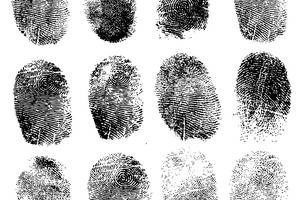How Reliable Is Fingerprint Evidence in Criminal Cases?
 Fingerprints are generally considered to be unique identifying factors. The patterns in the skin on a person’s fingertips are distinctive, and the latent prints left behind at a crime scene may be used to identify an alleged perpetrator. Because of this, fingerprint evidence can be a crucial factor in a criminal case. However, in recent years, the reliability of this type of evidence has been called into question, and criminal justice advocates have raised concerns about the possibility of false convictions based on fingerprints.
Fingerprints are generally considered to be unique identifying factors. The patterns in the skin on a person’s fingertips are distinctive, and the latent prints left behind at a crime scene may be used to identify an alleged perpetrator. Because of this, fingerprint evidence can be a crucial factor in a criminal case. However, in recent years, the reliability of this type of evidence has been called into question, and criminal justice advocates have raised concerns about the possibility of false convictions based on fingerprints.
Studies Show Fingerprint Analysis Is Not 100 Percent Accurate
While people may believe that everyone has a unique fingerprint, this has never been proven, and statistical analyses have not been able to determine the probability that multiple people may have the same fingerprints. Even though fingerprints are commonly used as tools in the investigation of crimes by law enforcement, the identification of a person through fingerprint analysis is not completely reliable, and the use of fingerprints without any other forms of corroborating evidence may result in wrongful convictions.
The testimony of fingerprint analysis “experts” is often relied upon in criminal trials. Even if an analyst does not claim that the identification of a suspect through a fingerprint is 100 percent accurate, they will often imply that this evidence is infallible or state that they are certain about a person’s identity based on the latent fingerprints at a crime scene. This will often give juries the idea that the testimony of a fingerprint analyst is completely reliable without considering the potential for errors.
Studies have found that while fingerprint analysis is generally valid, it should not be relied upon in a criminal case without also considering the potential error rates. One study of FBI fingerprint analysis found that false-positive errors in which a fingerprint was incorrectly matched with a suspect occurred in one out of every 306 cases. A study of a Florida police crime lab was even more troubling, finding that false-positive errors occurred in one out of 18 cases.
Because of the potential for errors when analyzing fingerprints, this form of evidence should not be the sole factor used to determine whether a defendant is guilty. In addition, jurors should be able to understand the reliability of the methods of analysis used in a specific case, the fingerprint examiner’s level of proficiency, and the possible error rates. Unfortunately, many criminal cases fail to meet these standards, and this may lead to the conviction of people who are innocent.
Contact Our Hartford Criminal Defense Attorney
During a criminal case, defendants have rights that should be protected, including the right to a fair trial. Evidence presented in court must meet certain standards, and jurors should be aware of any reasons why evidence may be called into question. To ensure that these issues will be addressed correctly, defendants will need to secure representation from an experienced attorney. Woolf & Ross Law Firm, LLC provides legal help to people facing criminal charges, and we can determine the best strategies for challenging fingerprint analysis or other forms of evidence. To schedule a complimentary consultation and learn how we can assist with your case, contact our Connecticut criminal defense lawyer today by calling 860-290-8690.
Sources:
https://thecrimereport.org/2021/12/06/is-a-single-fingerprint-enough-to-convict/
https://www.aaas.org/news/fingerprint-source-identity-lacks-scientific-basis-legal-certainty
https://www.criminaljusticenetwork.eu/en/post/the-reliability-of-fingerprint-evidence






